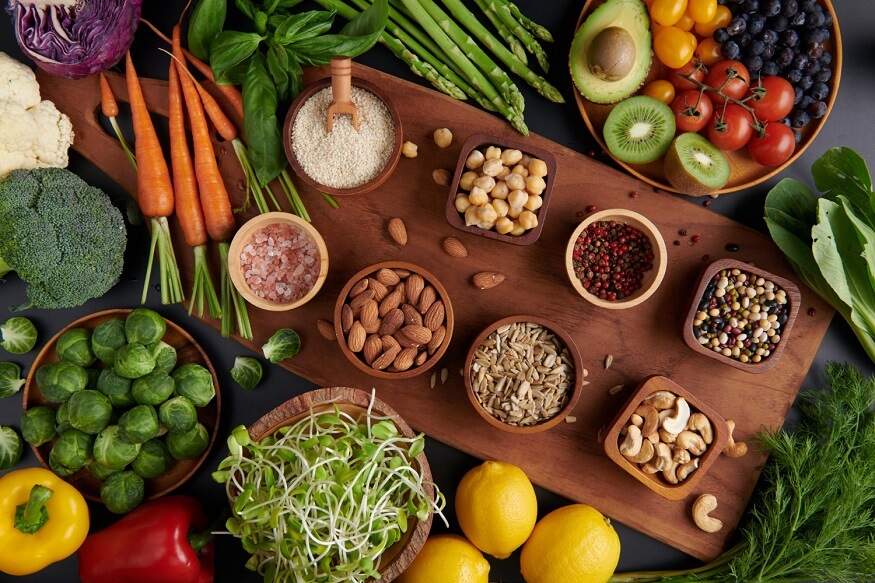Macronutrients are those essential nutrients in a child’s diet that are needed for optimal growth and development of the child. A popular myth about macronutrients is that they are largely about energy, weight loss or gain, and the building of muscles. However, macronutrients are much more than that. They support the optimal development and functioning of the child’s immune system. Carbohydrates, proteins, and fats provide energy as well as help make hormones and absorb vitamins and minerals. This blog is about balancing the macronutrients in a child’s diet.
Also Read: What is the Difference Between Essential and Nonessential Nutrients
Carbohydrates
Carbohydrates form an ample staple in a child’s diet. There are two types of carbohydrates, simple and complex. Usually, a child’s diet is laced with an excess intake of simple carbs and less healthy components made up of complex carbs. Simple carbs are in foods like white bread, pasta, cookies, and crackers. There is a school of thought that believes that all types of carbs must be restricted from a child’s diet. However, complex carbs have significant utility and contribution to a child’s growth and development.
Carbohydrates are important for a child’s immune system, brain, and metabolism. They help with digestion and provide lots of energy for active kids. All carbohydrates are not bad. It is the refined carbohydrates when consumed in excess that cause problems to our bodily functioning and adversely affect our body weight, blood sugar regulation, and energy levels. Excess intake of food containing refined carbohydrates can lead to problems such as insulin resistance and type 2 diabetes.
Carbohydrates can be included in a child’s diet via food items such as fresh fruits, vegetables (potato, corn, parsnip, sweet potato and pumpkin), grains, whole wheat bread, whole grain cereals, dairy, legumes, brown rice, peas, sweet corn, etc. Carbohydrates to avoid are via food items such as Cakes, pastries, pies, doughnuts, chips, confectionery, sweets, and all sugary drinks.
Also Read: Protein-Rich foods for good health of children
Proteins
Proteins are critical to the growth and development of every single cell in our body. Proteins are the building blocks of our body. This is the reason why the importance of proteins is emphasised in every diet. Proteins are not just essential for the child’s sleep quality and energy levels but they also play a big role in building cell and tissue structure, functioning of our muscles, hormone signalling, blood flow, building antibodies and food digestion. Proteins come in two forms when it comes to diets – complete and incomplete.
Complete protein diets comprise foods such as dairy, eggs, meat, and fish. The incomplete proteins can be found in seeds, nuts, legumes, and quinoa. Both complete and incomplete protein foods can comprise a healthy nutritional diet for children. Those who prefer vegetarian diets would largely depend on plant-based food that contains incomplete proteins, in addition to complete proteins such as dairy. Vegetarian or vegan diets can also be augmented with necessary protein supplements that complete your child’s diet in all protein-based requirements. The following foods can help you fix the protein intake in your child’s diet: Eggs, yoghurt, dairy, tofu, cheese, milk, legumes, peas, hummus, peanut butter, and nut butter.
Also Read: How Many Eggs Can Children Eat Every Day?
Fats
The first thing that comes to our mind when we think “Fats” is weight gain. However, it is a myth that healthy fats are as important for a child’s growth and development as any other macronutrient. It has been well established now that consuming healthy fats does not lead to weight gain. Fats are an essential component of a child’s healthy diet and are required for the child’s growth and energy. Fats hold special significance in the development of a child’s nervous system, for the secretion of hormones, and are an essential catalyst for fat-soluble vitamins. Last, but not least, fats provide taste and pleasure to the eating process, something very essential especially for a child’s eating process.
This does not imply that we can gorge on fried and junk food that is heavy in fat content. We must look for natural sources of fat-based food and avoid excessively oily, highly processed or fried food and snacks. The following are good sources of healthy fat that can be consumed: avocado, peanut butter, almonds, walnuts, flax seeds, salmon fish, olive oil, peanut oil, canola oil, corn oil, and soybean oil.
A healthy composition of carbohydrates, proteins and fats is essential for healthy growth and development of a child. It is of utmost importance to carefully design their daily diet such that it contains a balanced combination of these vital macronutrients. However, each child is unique in their dietary needs and hence parents should consult a qualified child dietician who can help them design an optimal healthy diet for their kids.
At EuroSchool, we boast of in-house dietary and child nutrition experts who provide valuable inputs to children and their parents to design a healthy diet for the optimal growth and development of our students.









